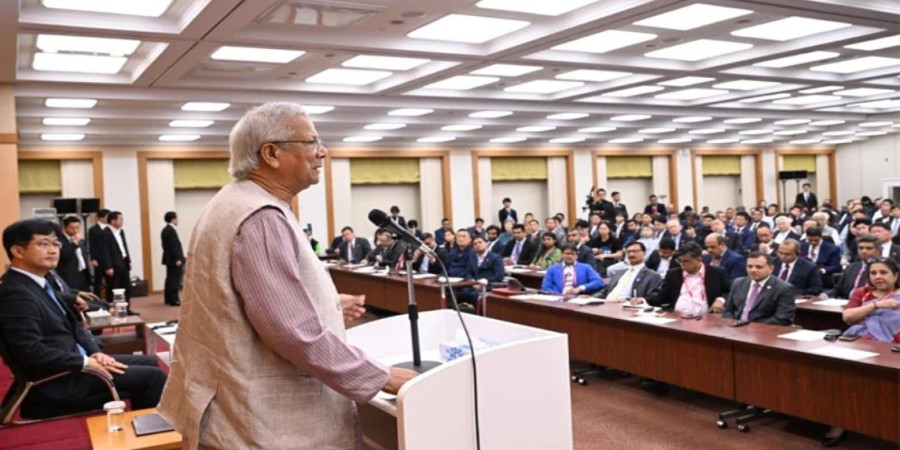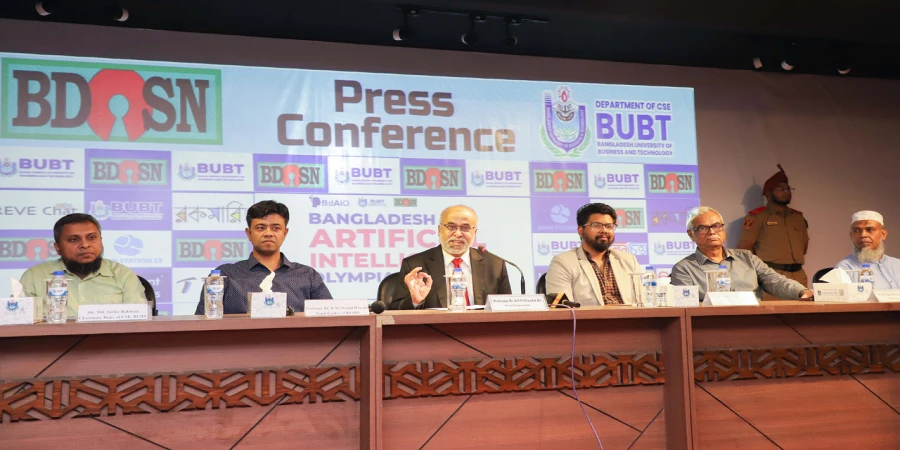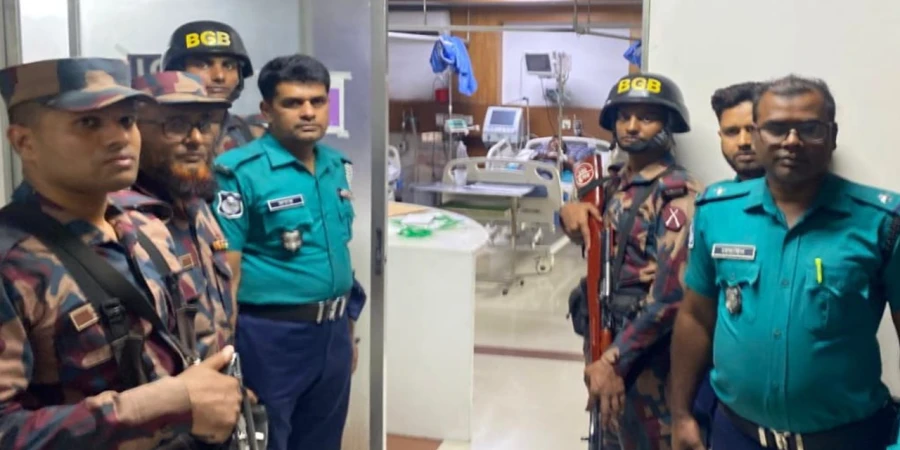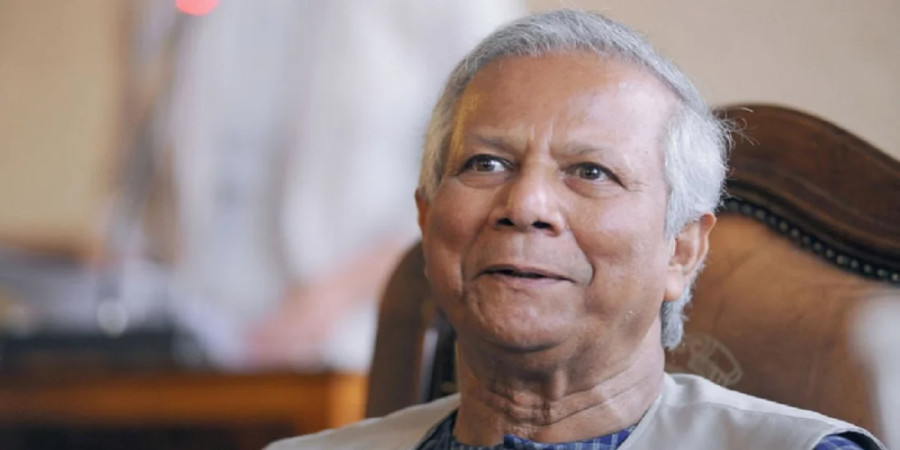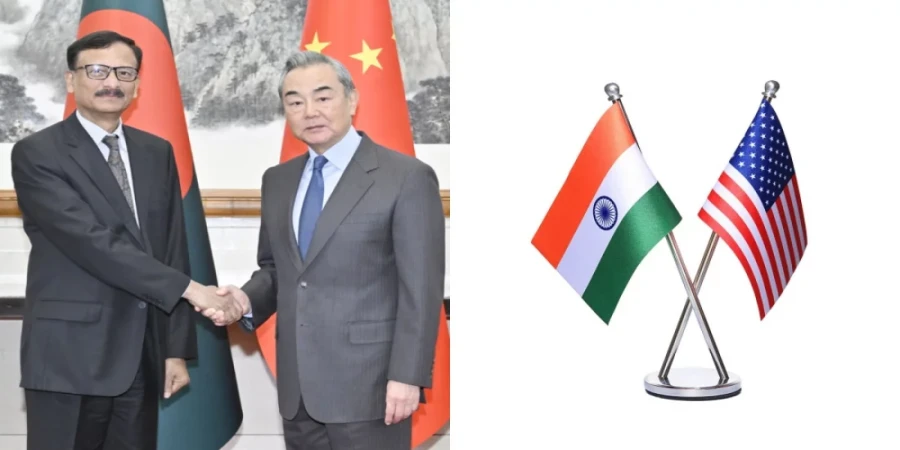
ছবি: Photo: Collected
Amid heightened diplomatic engagements, the United States and India have renewed discussions about Bangladesh, especially in the context of their respective relationships with Dhaka. The discussions were centered around Bangladesh's geopolitical positioning, with the two countries expressing caution regarding its ties with Beijing. Recent high-level talks, including those between India’s Foreign Minister Dr. S. Jaishankar and U.S. Secretary of State Marco Rubio, underscored the growing interest in strengthening their bilateral ties while keeping a watchful eye on Dhaka's shifting alliances.
During a meeting at the Indian Embassy in Washington on January 22, Dr. Jaishankar and Marco Rubio highlighted their countries' shared commitment to deepening their relationship. However, the specific content of their discussions regarding Bangladesh was not disclosed immediately, adding fuel to speculation in diplomatic circles.
The issue of Bangladesh’s foreign policy and its proximity to China has been a point of concern for both India and the U.S., especially as Bangladesh continues to strengthen its relations with Beijing. The presence of Chinese infrastructure projects in Bangladesh, along with economic agreements, has raised alarms in New Delhi and Washington, both of whom are keen to maintain regional influence.
Dr. Jaishankar’s visit to Washington follows an increase in diplomatic tensions and the complex dynamics surrounding U.S.-India relations under the Trump administration. While President Trump’s stance on immigration policies continues to create anxiety among foreign nationals in the U.S., including a significant Indian diaspora, his relations with Indian Prime Minister Modi have remained strong. However, questions have arisen regarding how these policies might affect India, particularly with growing concerns over the immigration status of millions of undocumented Indian nationals.
Amid these developments, India's Foreign Ministry spokesperson, Randeep Jaiswal, emphasized that India seeks a cordial and independent relationship with Bangladesh that does not depend on the nature of its ties with other countries. During a media briefing, Jaiswal reiterated India's position that it aims to keep its relations with Bangladesh "distinct" from its relations with other nations, and that the priority is always the welfare of the people of both countries.
Jaiswal also mentioned that India has closely monitored developments in the region, including Bangladesh’s engagements with China. He stated that India’s national security interests are always prioritized, and it closely observes any developments that might have an impact on its security. This has led to greater scrutiny of Bangladesh's foreign policy moves, especially regarding its partnerships with China and the ongoing debate over Bangladesh’s strategic positioning between two global giants.
The U.S. is also wary of Bangladesh's growing engagement with China, particularly in terms of trade, infrastructure development, and other strategic initiatives under China's Belt and Road Initiative. The U.S. and India are both keen on ensuring that Bangladesh does not tilt too far in favor of Beijing, and recent discussions between the two countries reflect this concern.
One of the key topics that emerged during the discussions was the issue of border security. Jaiswal mentioned that India and Bangladesh have worked together to address security issues along their shared border, including preventing human trafficking and cattle smuggling. He highlighted the importance of maintaining a secure and crime-free border, which he said both countries are committed to doing through joint cooperation.
Additionally, the recent remarks by U.S. Secretary of State Marco Rubio, during his meeting with Dr. Jaishankar, included a reaffirmation of America’s desire to strengthen its economic and defense relationships with India. Rubio emphasized that the U.S. is keen on working with India to deepen ties in critical areas, including technology, defense, and energy. He also expressed concern over "irregular immigration" and its implications for both countries, signaling that this issue remains a focal point of the bilateral relationship.
Despite the strategic discussions, the relationship between India and Bangladesh has not been without its challenges. Following the political upheaval in Bangladesh, particularly after Prime Minister Sheikh Hasina’s resignation, India has been actively engaged in managing its relations with Dhaka. There have been talks about normalizing ties between the two nations, but issues such as border security and refugee management continue to create friction.
While India’s position has been one of cooperation, the political and economic landscape in Bangladesh remains fluid. The presence of Dr. Muhammad Yunus, a prominent figure in Bangladesh’s political and social landscape, has also attracted attention from Washington, which has supported Yunus in his endeavors. This has led to further speculation regarding the U.S. and India’s efforts to influence Bangladesh’s policy choices.
As diplomatic exchanges between the U.S., India, and Bangladesh continue to evolve, it is clear that Bangladesh’s foreign policy decisions will play a significant role in shaping the geopolitical dynamics of South Asia. The ongoing dialogue between Washington and New Delhi highlights the importance of this relationship and the shared interest in ensuring that Bangladesh remains a stable and independent partner in the region.
With both countries closely monitoring developments in Bangladesh, it remains to be seen how the future of U.S.-India relations will influence Bangladesh’s strategic choices. As diplomatic tensions and strategic interests continue to intersect, the situation in Bangladesh will undoubtedly remain a key focal point for both India and the U.S., with the potential for further engagement and diplomatic initiatives to shape the region's future.
repoter



